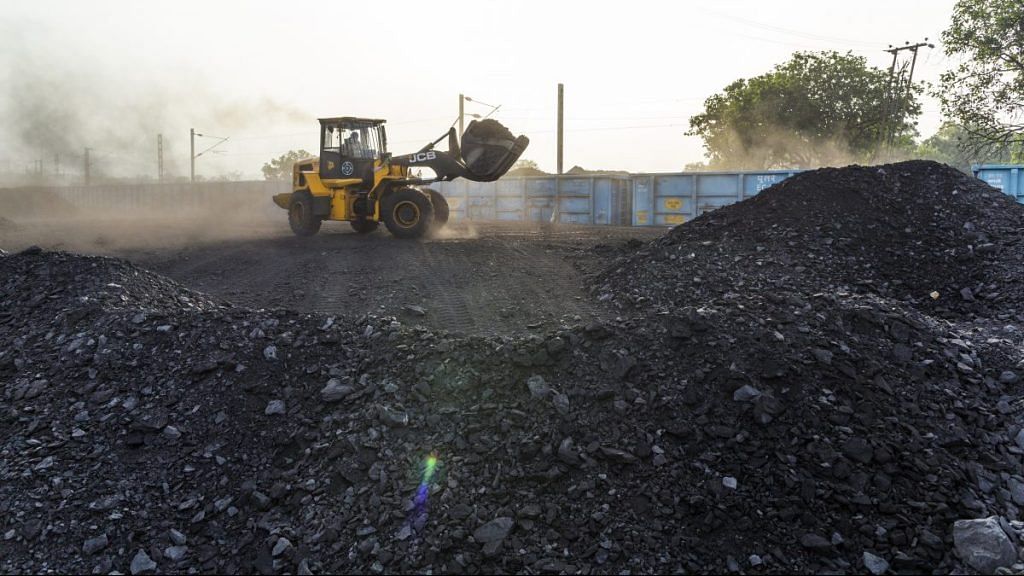New Delhi: Paving the way for commercial mining, India Thursday initiated the auction of 41 coal blocks that have a capacity to produce 225 million tonnes of coal per year.
Launching the auction, Prime Minister Narendra Modi said the onset of commercial mining will bring the sector out of decades of lockdown.
“We are not just launching the auction for commercial coal-mining today, but bringing the coal sector out of decades of lockdown,” PM said.
ThePrint looks at what commercial mining is and what it means for coal production.
What is commercial mining?
Commercial mining allows the private sector to mine coal commercially without placing any end-use restrictions. The private firms have the option of either gasification of the coal or exporting it.
They can also use it in their own end-use plants or sell them in the markets. The government expects more than Rs 33,000 crore of capital investments over the next five to seven years in the sector.
Further, with 100 per cent foreign direct investment allowed in the coal sector, global companies can also participate in the auctions.
The complete freedom to decide on sale, pricing, and captive utilisation is expected to attract many private sector firms to participate in the auction process.
The government expects these steps will generate employment and reduce India’s import bill.
Also read: Auctioned coal blocks will create 2.8 lakh jobs, attract Rs 33,000 cr investment: Amit Shah
Who all can bid under the auction?
The government has done away with all eligibility criteria, allowing even firms with no prior coal mining experience to participate in the auction. The firms will only be required to make an upfront payment.
The revenue sharing will be on an ad valorem (the value of the transaction) basis and not on the basis of a fixed amount.
The present bidding terms also allow other minerals to be extracted from these blocks. Further, the coal ministry will also help the private sector in getting statutory approvals like environment and other approvals.
Was the private sector never allowed in mining?
Private sector participation was permitted until the early 1970s. The Indira Gandhi government announced the nationalisation of the coal blocks in two phases between 1971 and 1973.
The Modi government’s reforms will effectively end state-owned Coal India’s monopoly over mining and selling of coal.
Is this the first attempt by govt to open up the sector?
After the Supreme Court cancelled the coal block allocations made to the private sector by the Congress-led United Progressive Alliance government in 2014, the Narendra Modi dispensation had brought in the Coal Mines (Special provisions) Act of 2015 to return these coal blocks to the private sector through auctions.
But there had been end-use restrictions and the private sector was not allowed to trade into the market making it unattractive for the private sector. Further in 2018, private sector firms were allowed to sell upto 25 per cent of the output in the market, but this also saw a lukewarm response from the private sector.
Meanwhile, sectors like power, aluminium and steel are likely to be the biggest beneficiaries with enhanced availability of coal.
India imports nearly 250 million tonnes of coal from other countries despite having the world’s fourth largest coal reserve.
The government is hoping that the involvement of the private sector will increase production and make India self-sufficient in meeting its internal coal requirements.
Also read: Coal India’s stranglehold will deter investors from commercial mining opened up by govt
